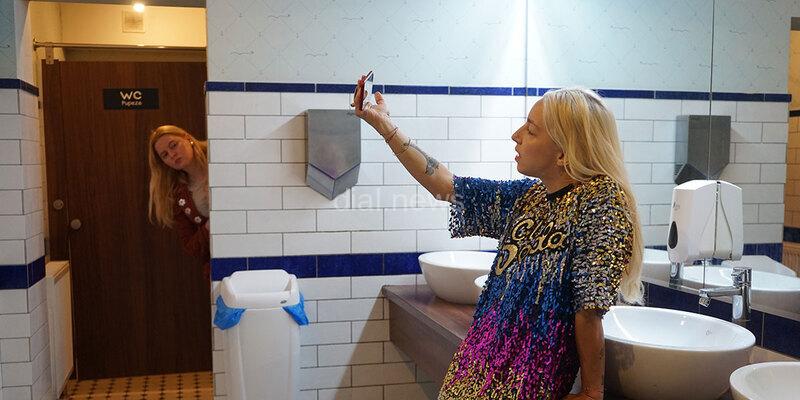[ad_1]
Atom Egoyan is one of Canada’s proudest filmmakers, although his latter-day work has not earned nearly the same international attention as his earlier hits like “Exotica’” and “The Sweet Hereafter.” Nevertheless, loyal fans were excited to see him team up again with Amanda Seyfried, the star of his 2009 film “Chloe.” Written and directed by Egoyan, “Seven Veils” is a metatextual commentary on the creative process and its effect on people. Loosely based on Egoyan’s own staging of “Salome” in 1996, “Seven Veils” was filmed when he recently restaged the show for the Canadian Opera Company and made its world premiere at TIFF.
The movie’s version of events follows rising opera director Jeanine (Seyfried), who struggles with her own memories of trauma when mounting a show that her mentor originally created. She’s at constant war with her past, both personal and professional. Meanwhile, other conflicts abound, like a widowed opera company director Beatrice (Lanette Ware) who wants nothing to change from the original production, and Jeanine’s husband who begins an affair with her mother’s caretaker.
“Seven Veils” provides Egoyan with the chance to respond to some of the cultural changes that have happened since his original staging. There’s an intimacy coordinator that Jeanine detests, and the movie includes a bit on cancel culture after Clea (Rebecca Liddiard) reports the handsy opera lead Johann (Michael Kupfer-Radecky). She then tries to turn it into an opportunity for her girlfriend Rachel (Vinessa Antoine), an understudy at the company, to play the other lead. It’s at odds with the way Egoyan attempts to address the trauma in Jeanine’s past, the way men have exploited her all her life, and the way she fights to create something of her own—something of herself—in spite of their efforts. Yet, she’s also capable of abusing the same power differential used on her when she begins to flirt with another understudy played by Douglas Smith. Combined with the off-putting stilted dialogue, I can’t tell if Egoyan is aware of everything going on in his metatextual milieu, only that he is reveling in its chaotic frequency.

In a similar vein, Radu Jude’s work speaks volumes for itself. The Romanian filmmaker with a fondness for eye-catching titles like “I Do Not Care If We Go Down in History as Barbarians” and “Bad Luck Banging or Loony Porn” is back with the marquee-breaking “Do Not Expect Too Much from the End of the World.” Mubi acquired the film for the U.S., and the happy news broke just as the first screenings were about to begin. It previously premiered at the Locarno Film Festival in Switzerland, where it won a special jury prize.
[ad_2]

